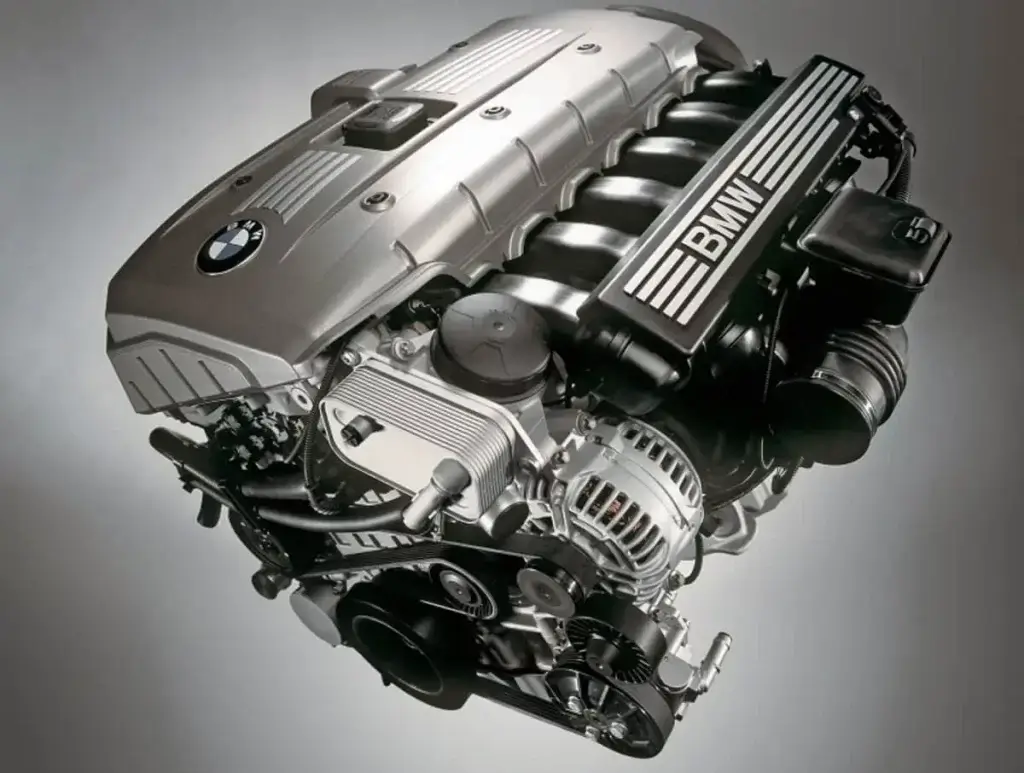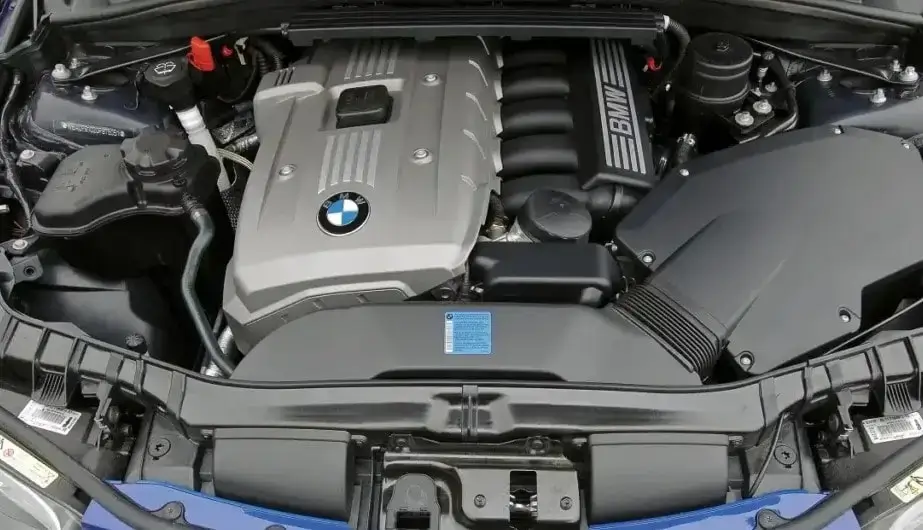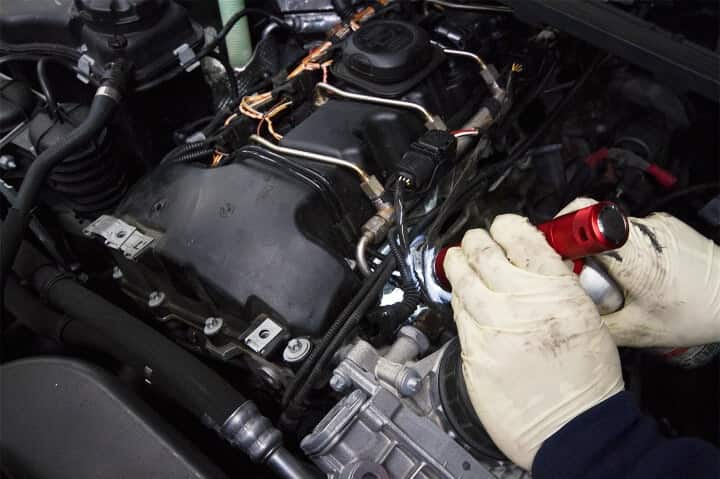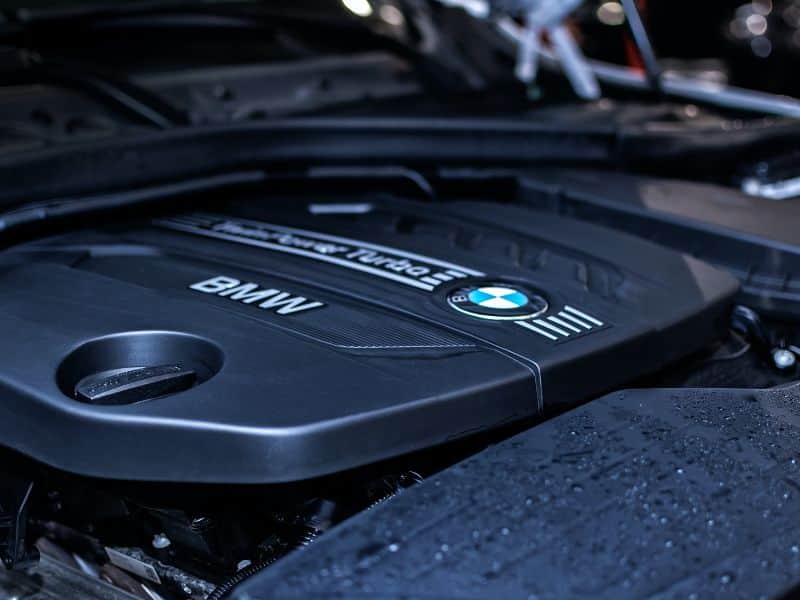The BMW N52 engine is one of the most reliable and successful inline-6 engines ever produced by BMW.
This engine was produced from 2004 to 2015, and to name a few, it’s been used in various 3 series, 5 series, X1, X3, X5, and also the Z4. It’s also the first engine I have driven in my 3 series.
As the N52 is known for its smooth performance and solid reliability, it’s still a mechanical component. And as with any other machine, the N52 is also prone to face some common problems.
These common problems are mostly valve cover gasket failure to carbon buildup, fuel injectors, ignition coils failure, etc.
So, in these blogs, we’ll discuss the 8 most common BMW N52 engine problems. By knowing these problems you can make better decisions for scheduled inspections for those components and do proper maintenance.
And if you tackle these common problems your N52 will show you why it is one of the reliable engines in BMW’s playbook.
So, let’s delve right into it.
Common BMW N52 Engine Problems
These are the most common problems associated with the N52 engine.
Apart from these, you won’t face any other problems and you’ll know why the N52 is known as the reliable one.
Know about these common problems & do scheduled maintenance and you can enjoy the reliability of your N52 engine.
So, here are they:
1. Hydraulic Valve Adjusters (Lifters) Ticking Issues
This is a common problem, where at higher mileage your vehicle will start making an annoying ticking noise from the engine.
This annoying ticking noise will be persistent whenever you’re driving.
The main reason for this noise is the hydraulic valve adjusters(lifters) are not working properly due to insufficient oil.
The main culprit here is the hydraulic valve adjusters (lifters) due to the poor design of the cylinder head and the lifters itself, which block proper oil circulation.
And this issue only persists in earlier 2008 models. Because in December 2008, BMW changed the cylinder head and lifter design and fixed this issue.
How to Fix Lifter Ticking Noises
So, there are two solutions, temporary & permanent, the permanent is pretty costly, but it’s worth it. However, it would help if you first tried the temporary solution cause it’s free & some guys I know have solved the issue by doing that for some time.
Temporary Solution: The free solution is you should “bleed” the lifters.
To do that drive in high RPM (>4,500 rpm) for about 30-35 minutes only on a highway. It may work for you a couple of times, but remember this is just a temporary solution.
And you need a permanent one to solve the annoying ticking noise.
Permanent Solution: The permanent solution is to replace your lifters and cylinder head with a post 2008 designed ones. But that’s gonna cost you about $2,500 to $3,000.
But, there’s another way, just continue with the annoying ticking noise.
Suggestion: If you have the budget go for the replacement, and get rid of the noise.
Repairing Cost: about $3,000 at an Auto shop
DIY Level: Very difficult
2. VANOS Failure
The N52 uses BMW’s VANOS system, which is a variable valve timing system used in the intake and exhaust valves.
This technology uses VANOS solenoids, which are responsible for controlling the oil flow to the actuators to move the cam gears, which control the opening and closing of the valves.
The failure of solenoids is one of the common problems with the N52. In this case, you could still run your vehicle, but it will result in loss of power, poor/rough idling, issue starting, poor fuel economy, etc.
These solenoids commonly tend to last for about 70,000-75,000 miles. So, we recommend you replace them at this time interval because otherwise, it will result in loss of performance, and luckily it’s not that expensive and labor intensive.
So, the basic engine code for VANOS failure would be:-
- 2A82: Vanos Intake Solenoid Malfunction
- 2A87: Vanos Exhaust Solenoid Malfunction
These two problems are easy to solve, and they are the same (Vanos solenoids), so just buy 2 VANOS solenoids and replace the faulty ones.
Repairing Cost: About $454 to $547, where about $230-$250 will be the solenoids and the rest are labor costs. (labor costs can saved by DIY)
DIY Level: Intermediate
3. Ignition Coil Issues
The Ignition Coil failure issue in the N52 engine is a very commonly reported issue among the N52 owners.
The ignition coil is basically an electric transformer, which converts the electricity from a 12V battery and directs that to the spark plug.
With an ignition coil issue, you will experience engine misfires, check the engine light, bad fuel economy, and continuous limp mode. Except for a malfunctioned coil, it can also cause issues due to worn spark plugs.
When a spark plug is worn, it forces the ignition coil to work more to make up the spark plug wear.
However, the ignition coil is not expensive and you should replace it as soon as possible. You could also save labor costs by doing it yourself(DIY).
Repairing Cost: The average cost of ignition coils is about $180-$259 and $120-$250 for labor.
DIY Level: Easy
Reading Also: BMW N54 Intake Valve Cleaning: Step By Step Process
4. Water Pump Failure
The BMW is infamous for its water pump failures, and the N52 was not an exception.
The N52 introduced an electric water pump instead of a traditional mechanical unit, with many advantages it’s ECU can change the flow rate according to your driving, which was a very new technology for the manufacturers.
The water pump was made out of plastic, which was more prone to damage, and cracking over time. So, there were many instances where they were damaged in 40,000-45,000 miles, my one damaged at the verge of 47,000 miles.
When the water pump fails you would notice your engine overheating and sometimes smoke coming out of the radiator.
The water pump fails around 80,000-1,20,000 miles, however, it’s better to replace them between these marks.
When replacing, I would recommend replacing the plastic impeller with a metal impeller, it would last longer.
Repairing Cost: $400 to $650 for the water pump, and $1,200 to $1,550 including labor cost
DIY Level: Intermediate to Difficult
5. Valve Cover Gasket Leak
Valve cover gasket leaking oil is a very common issue among multiple BMW engines.
The valve cover is made out of plastic, so over time from the engine heat it wears down and starts to crack. And, this results in oil leaking into the engine bay.
But the main issue is to identify a damaged valve cover gasket.
Because it doesn’t give any warning signal for leakage in the gasket, you have to manually check that. BMW will only show a low oil sign, so you’ve to manually diagnose any oil buildup, after removing the valve cover. And, the spark plugs and ignition coil will be covered by oil.
Also, you will notice many symptoms such as the smell of burning oil, smoke from the valve cover, low engine oil light, oil leakage, etc.
The best way to fix that is to replace the damaged valve cover gasket with a new one or replace/fix the valve cover gasket.
Repairing Cost: About $486 and $592 for the labor and parts are about $85-$110.
This cost could increase to $600-$1000 according to the labor cost in your area. And if your valve cover needs replacement you’re looking at double the bill amount.
DIY Level: Intermediate to Difficult (DIY could save you the labor cost)

6. Thermostat Failure
This is another BMW N52 common problem where the thermostat fails. Sometimes the water pump failure is mistaken as a thermostat failure and vice-versa.
The thermostat starts in a “close” position, to let the car reach the operating temperature faster. Then after a certain operating temperature it “opens” up and forces the hot coolant into the front radiator to cool down.
After the water pump pushes the cooled coolant from the radiator to the engine.
The thermostat is like an on and off switch which happens based on the coolant temperature.
The thermostat can fail in two positions “open” or “closed”. If it fails in the “closed” position, it will stop the flow of cold coolant which will quickly cause the engine to overheat.
Because of engine overheating, the engine is prone to serious damage due to extremely high temperatures.
And if you used the engine continuously you’re looking at radiator cracking, blown head gasket, various damaged/cracked cooling components, and many other serious engine damage.
Basically, the N52 is designed to fail in an “open” position.
And if it fails in the “open” position the risk is lowered, and it’s the more desired option. But still, in both situations, it’s not good for the engine, and it needs to be fixed as soon as possible, otherwise you’re looking at thousands of dollars to fix the engine.
The major symptoms will be extreme engine overheating(closed position), coolant leaking near the thermostat, taking a longer time to get operating temperature (open position), etc.
If the thermostat fails you should replace it as it’s not that costly.
Repairing Cost: The part costs about $70-$165, and the labor costs around $240 to $450
DIY Level: Intermediate
7. Oil Filter Housing Leak

Like the valve cover gasket, the oil filter housing gasket is also prone to deteriorate over time.
The oil filter gasket seals the oil filter housing and if it is cracked/damaged it will cause oil leakage. In the N52 and the whole N5x family, the oil filter housing leak is the common component for oil leaking.
As normal oil leaks are very crucial, the leakage from the oil filter housing is very dangerous because it can cause serious engine problems if ignored.
Because leaking oil is prone to leak into the serpentine belt, then the belt gets covered with oil and slips off towards the timing cover, which chews it off and causes bits of the belt to go into the front crank seal and the engine.
Eventually, it will cause your engine to be completely destroyed, and in the best-case scenario, you’re looking at thousands of dollars of repair.
There will be similar signs of valve cover gasket leaks, burnt oil smell, oil leakage below the car, oil around the intake manifold, etc.
Repairing Cost: About $35-$54 for the gasket, and about $400-$452 for the Oil Filter Housing (if needed) plus $250-$420 for labor cost.
DIY Level: Intermediate
Reading Also: BMW N54 Tuning Guide & Tips for Beginners
8. Misfires or Rough Idling
Continued misfires or rough idling is a clear sign of the N52 engine failure.
This issue can be caused by faulty ignition coils, spark plugs, and faulty fuel injectors. This will eventually result in loss of engine performance/power, poor fuel mileage, slow starts, and a damaged catalytic converter.
All the symptoms are the same as the VANOS solenoid failure, where you won’t get an engine code as you’ll get with VANOS failure.
As mentioned earlier the major culprits in this case are the spark plugs and ignition coils. So, you just need to replace these parts with a new one.
By the way, you should replace these parts on your N52 engine every 35,000-60,000 miles.
Repairing Cost: Spark plug is about $70-$130, and $150-$255 for labor. And, ignition coils are about $180-$259 and $120-$250 for labor.
It’s always better to DIY these replacements, they’re very easy to perform.
DIY Level: Easy
Note: The labor costs mentioned above can vary depending on your location, labor expertise, and the particular dealership/shop.
Symptoms of common BMW N52 engine failures
Here are some common symptoms you’ll face when you’re N52 engine is failing.
- Warning Engine Light on the Dashboard
- Rough Idling or Misfires
- Reduced Engine Performance
- Poor Fuel Economy
- Burning Smells and Oil Leakage
- Unusual Noises
What BMW Models Has The N52 Engine?
The N52 engine is one of the most reliable and successful inline 6 engines of BMW. And, it has been used in various BMW models.
Starting from the multiple generations of the 3-Series, 5-Series, 6-Series, 7-Series, Z4, and X series.
To know more about the models that use the N52 engine, read here: What BMW Models Has the N52 Engine?
Conclusion
So, now you know about all the possible common problems the BMW N52 engine faces.
As you know by now, these problems are the most common problems associated with any mechanical unit. And there’s a reason why the N52 engine is one of the most reliable engines ever.
So, let me know if you’ve driven an N52 engine before, or if you’re thinking of getting one with an N52.
Image Credit: Facebook
FAQ
Yes, the N52 is the most reliable inline 6 engine ever produced by BMW. Apart from minor wear & tear, this engine is really good in terms of longevity.
The most common problem in the N52 engine is oil leakage through the oil filter housing, oil pan gasket, and valve cover gasket.
Also, other common problems like ignition coil failure, water pump, thermostat failure, VANOS failure & lifter ticking also happen.
Yes, you could say that. The N52 is known for its lifelong reliability. If you maintain the N52 well, it will probably last for your lifetime.
It can easily last anywhere between 200,000 and 300,000 miles. However, I’ve heard of instances where the N52 has lasted well over 300,000 miles and running without any issues.
Starting from the year 2011, the BMW N20 turbocharged four-cylinder engine started to replace the N52 until the N52 engine production stopped in 2015.




